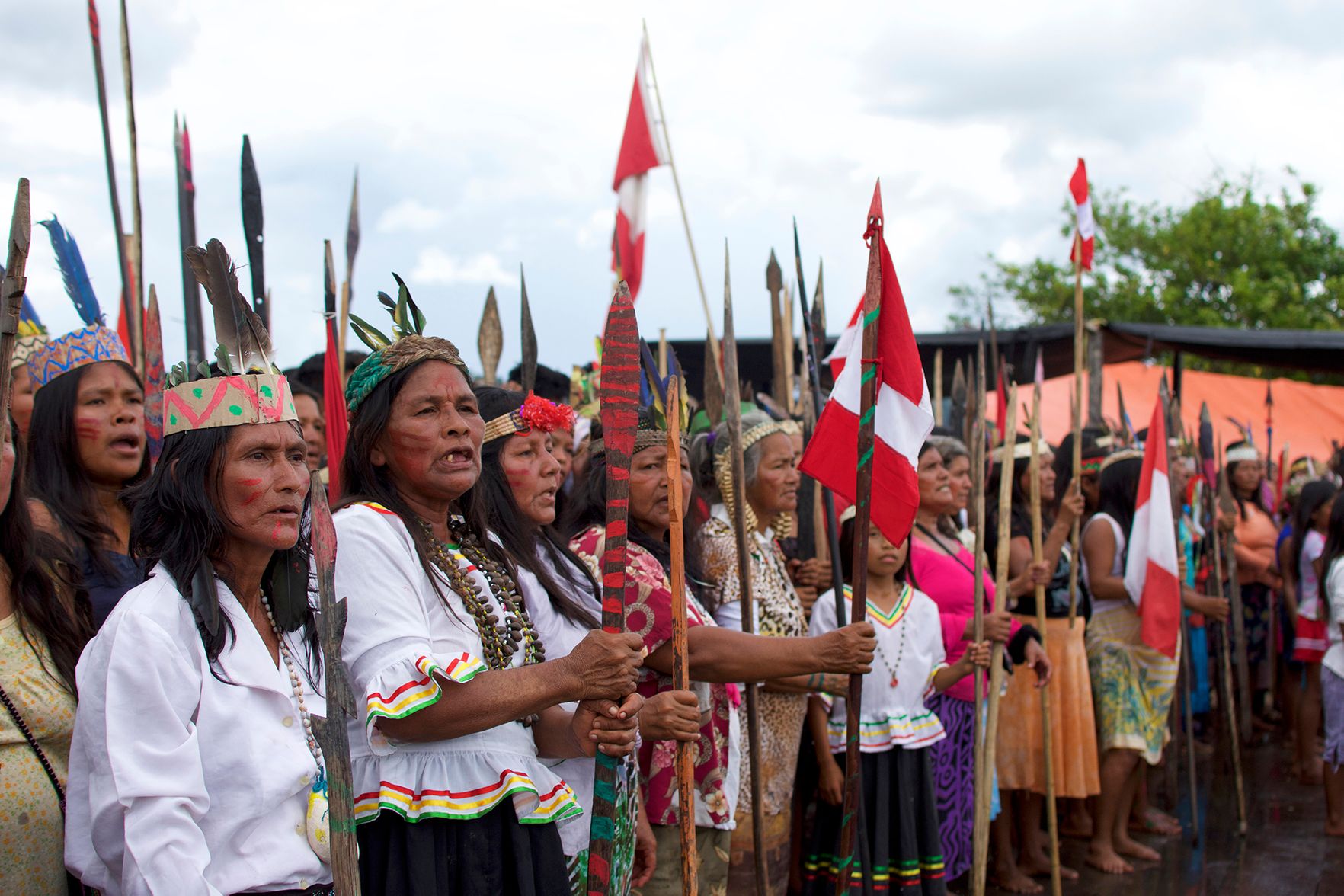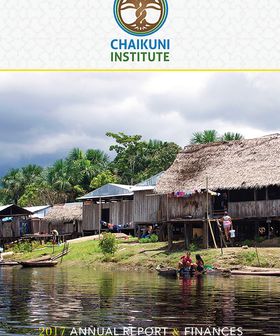Read our annual report and finances for 2017. Discover the inside story and the highlights from our three programs: Permaculture, Intercultural Education and Human & Nature Rights.
Letter from the Director
When I was a teenager, I had a poster of a Native American Cree prophecy hanging above my bed right next to a poster with Leonardo DiCaprio starring in the blockbuster film “Titanic” – the prophecy read:
“When the last tree has been cut down, the last fish caught, the last river poisoned, only then will we realize that one cannot eat money.”
I remember my friends making fun of me, calling me a peace-keeper, a lost boy scout, a hippie. And yet here I find myself concluding a perfect nine-year circle in the Peruvian Amazon, standing with indigenous people to defend their rights. After all, Leonardo hanging next to the Cree Prophecy was maybe not a coincidence: the famous actor has taken on an important role as an activist for indigenous and nature rights and we were happy to kick off 2017 with his retweet and regram of a Chaikuni photo of indigenous women on the frontline. I feel honored as these nine years have been like a living dream: being at the service of vulnerable groups and Pachamama (Mother Earth).
In the last couple of years, a deep connection with the master plants has been key to Chaikuni’s work and vision. Special thanks goes to our ally The Temple Of The Way of The Light, an important traditional medicine plant center in the region, which gives the constant opportunity to grow and empower.
Over the past year, Peru’s political crisis has read like a telenovela: corruption scandals, family drama, and unseen games of thrones, in light of which advocating for the rights of vulnerable groups became even more complicated. A group that called special attention in 2017 were the women in Peru marching through the streets as “Ni Una Menos” (not one less - referring to cases of femicide): statistics regarding violence against women, and in particular indigenous women and girls, are outrageous. Chaikuni was called to work with our indigenous female students and to organize “women’s circles” in order to address their own reality of violence, abuse, and discrimination while they live in the city to pursue their dream of becoming professionals at the service of their communities. More than ever, I am convinced that our mission continues: to empower indigenous and local people in their processes to lead social change.
As Chaikunis, we stand strong in solidarity. Thank you for standing with us.
With love from the heart of the Peruvian Amazon,
Sarah Kerremans,
Executive Director



